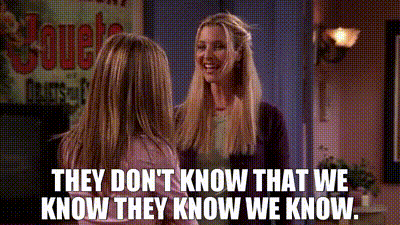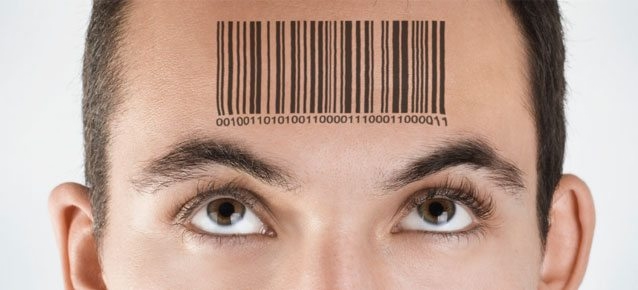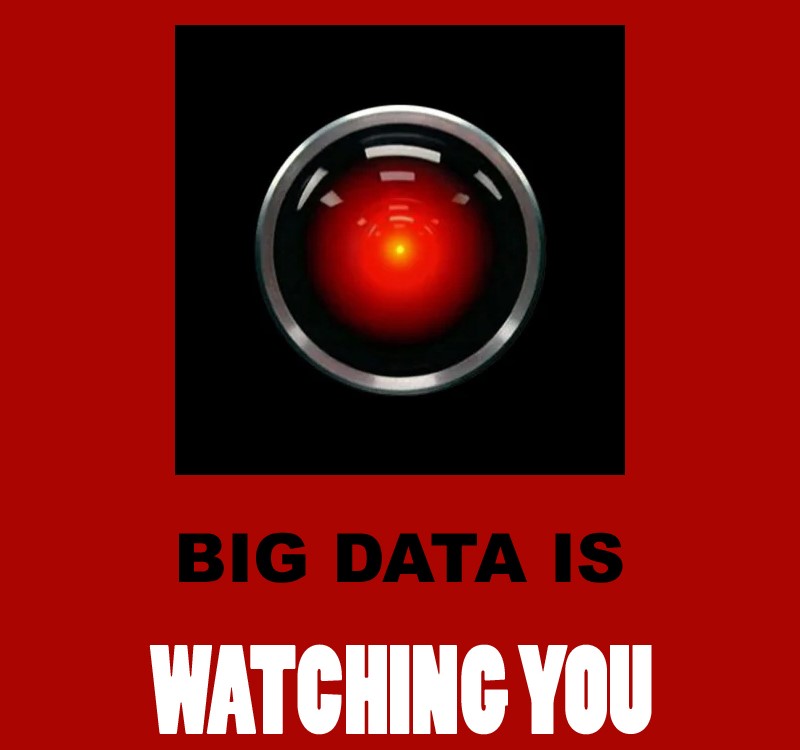
In Brief: users online know advertisers are hiding behind online cookies and personalised ads. They will try get rid of you. How? They will start tricking the algorithm. They will feed it false data so that you end up on the wrong trail. So digital advertisers need to seriously start understanding online users’ privacy concerns. There is a time and place for personalised digital ads. It is not when users least expect to see them!
[Gif: source]

Tricking the Algorithm. How?
- Deliberately searching for things not interested in.
- Liking content don’t actually enjoy.
- clicking on links not actually interested in.
- Deliberately clicking on ads not interested in.
In a nutshell: providing online algorithms (search engines, websites and social media platforms) with deliberately inaccurate personal preference information so that algorithms cannot accurately target them.
Principle is simple: wrong data = wrong predictions and recommendations.
[Image: source]
the problem: A Privacy bubble
Digital advertising has existed in a privacy bubble of extensively available personal user data. Using this data has been fine for targeting users on the relevance metric through SERP marketing, but in many other cases its use or collection is outright intrusive. There is a time and place and that is not when users are doing something entirely unrelated on the web, especially when they least expect to see you. Take when TikTok deliberately tracked LGBTQ content consumers often without their knowledge or how Facebook on average shared users’ data with 2,230 companies. This vast amount of personal data has created a bubble. As users continue to suffer these privacy violations and take action, the privacy bubble will burst.

Personalised ads: the salesman that won’t leave you alone

Yes, you can avoid the salesman, but online users cannot fully avoid tracking yet. As users become more frustrated by constant tracking and intrusive personalised targeting, they will fight back. How? Tricking the algorithm by feeding it false data. If your data is wrong, then your insights will be wrong too. Your budget wasted. Your job threatened. Is it any wonder why Google is testing removing third-party cookies? Even Google knows the privacy bubble will burst.

the users’ perspective
The internet is relatively new. It is the main reason online privacy violations persist. However, users are now aware that sites are on their tail. Much like on TV, when a character (Flanders) is being tailed by a stalker (Homer), they will do everything to lose their stalker. Including giving the stalker the wrong trail or forcing them away. Online: tricking the algorithm will do the same.
“most people know about online tracking – and want Congress to do something about it“
Professor Peter Krapp
the bigger picture: Users’ Boundaries

Don’t assume users will continue to tolerate online privacy violations. Yes that includes:
- Unexpected ads based off past searches appearing out of nowhere.
- Ads for a product a user mentioned with their device in the background.
- Creepily accurate personalised recommendations.
The data shows consumers don’t like intrusive personalised ads and they are trying to avoid them. If you don’t set a boundary and respect users’ privacy, they and the regulators will set it for you. GDPR in the EU is a step in this direction. Research even suggests tricking the algorithm is the path forward for users to protect their privacy online. So stop targeting users at the wrong time and place – personalised ads can catch them off guard.
organic growth vs GMO Advertising
Organic growth with SEO in digital marketing comes up a lot. Yet most targeted personalised advertising and stalking via cookies is anything but organic. It is like using GMOs and factory produced pesticides to boost crop size and grow at rates much faster than would be possible through organic farming. Yes mass produced factory food has survived so far, but organic, vegan and vegetarian movements are becoming increasingly popular. Each in part at least, rebelling against inorganic and unnatural farming practices. This may very well repeat itself in the online world, where users don’t want to be used as a pesticide or GMO by brands to help grow the brand’s business online. Users might engage in an “organic” movement of tricking the algorithm by feeding it false data and searches so that the only way you as a brand can be found online is when users are consciously looking for you. Not when you want them to subconsciously look for you. SERP is a safe bet, likely users are looking for you. The rest requires a judgement call. Personalised video ads on YouTube might be okay, users are used to video ads, they expect ads then. Personalised ads on other social media platforms or websites are a privacy grey area. Tread carefully.
[Image: source]

Takeaway
With personalised ads, personal data gathering and user tracking, you might think you know the customer better than ever. However, you missed that many users don’t like being tracked or targeted with personalised ads. So yes users may increasingly trick the algorithm. So it is time to give them their space. Digital advertisers need to better understand when the right time and place for ads online is and avoid appearing out of nowhere when users least suspect.
back to top: Digital Advertising in the Data privacy age. Will Users Trick The Algorithm?

Leave a Reply
You must be logged in to post a comment.